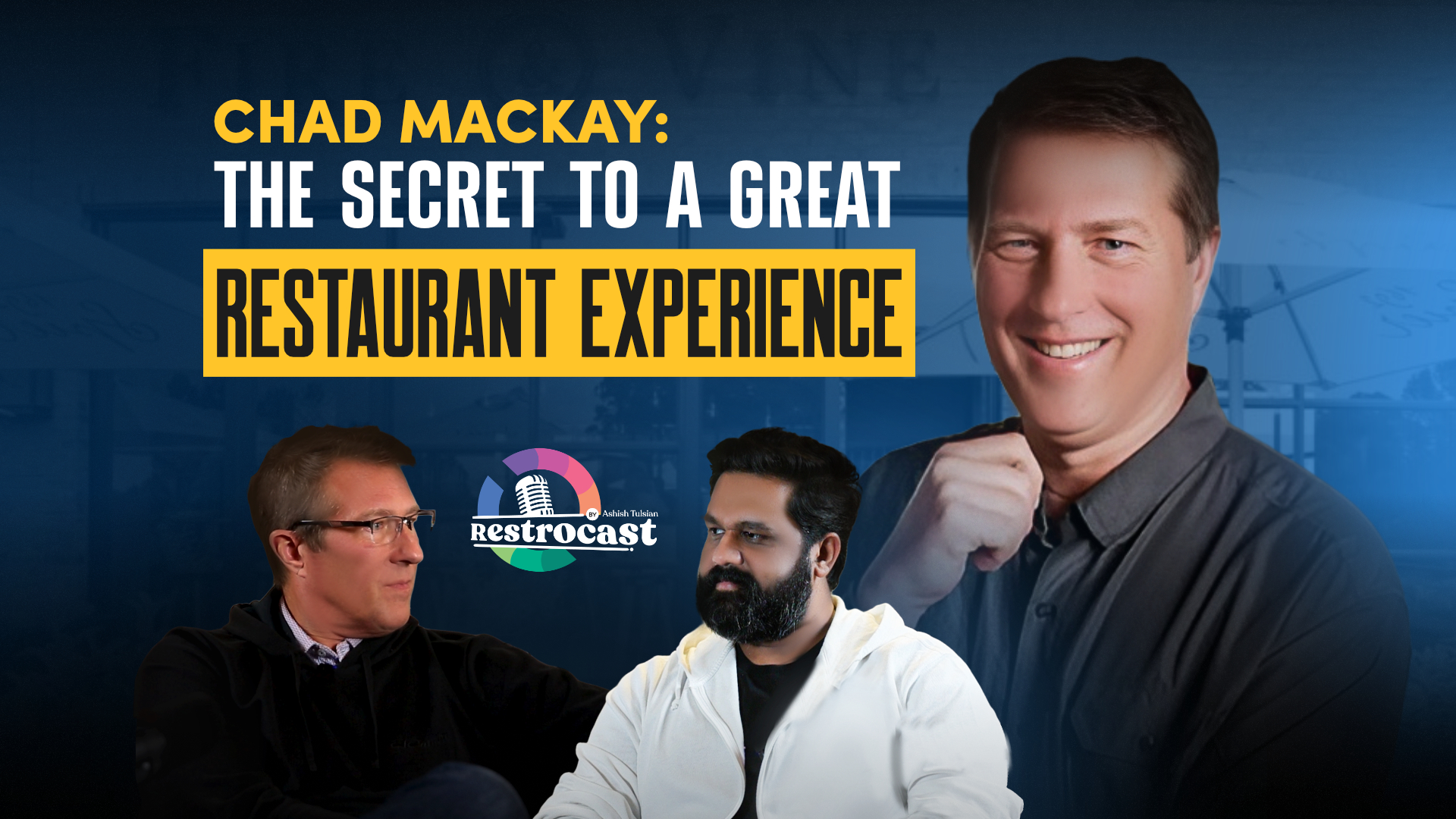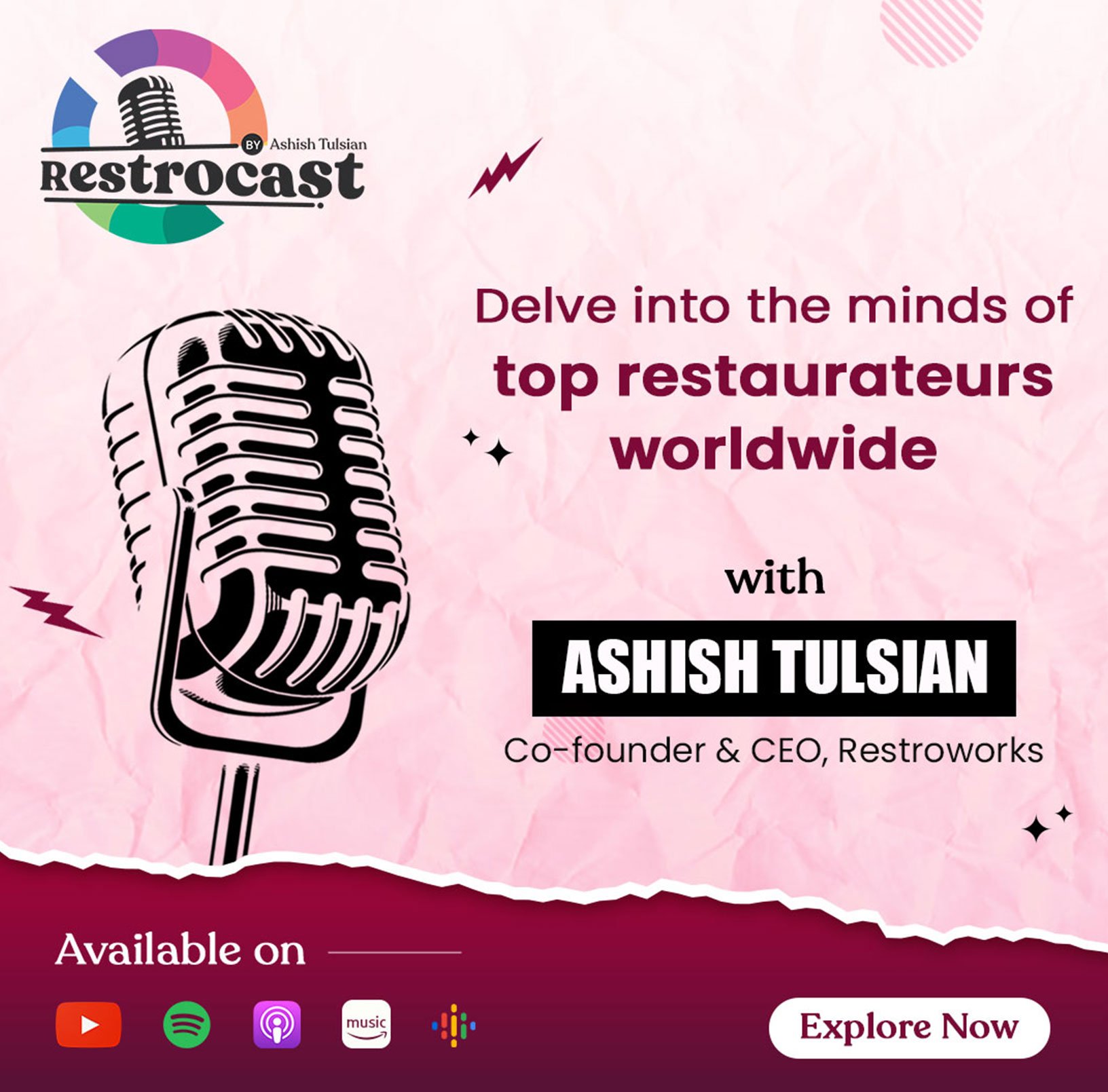
Chad Mackay has built a group of restaurants by staying true to one core belief: great hospitality starts with great people. His journey, shaped by family legacy, personal reinvention, and a deep respect for the human side of business, offers a refreshing contrast to the fast-paced, often transactional world of hospitality.
In conversation with Ashish Tulsian on Restrocast, Chad reflects on his early exposure to restaurant life through his father’s footsteps, his pivot from the corporate world back into hospitality, and how embracing failure, empowering teams, and staying grounded in purpose have shaped his journey. From weathering the 2008 financial crisis to fostering multi-decade employee tenures, this is a masterclass in building a business where people come first—and stay.
Chad, let’s begin with your story. How did you first get into the restaurant business?
Chad Mackay: Thanks for having me, Ashish. My entry into the restaurant world started early. My dad managed some of the best restaurants in Seattle, and I worked in them as a dishwasher and busser. Eventually, I worked my way up to sous chef. But after watching a family restaurant suffer significant losses—flooded twice and dealing with Federal Emergency Management Agency (FEMA).—I stepped away. I told myself I’d never work in restaurants again. I went to Seattle University, got a business degree in accounting, and started a corporate career.
So what brought you back to the industry?
Chad Mackay: Funny story—I was doing well in consulting, working with companies like Arthur Andersen and later in 3G billing systems for wireless companies. But I didn’t love the culture where I was working. Around the same time, my dad—who had launched Flying Fish and later El Gaucho—approached me. He said, “If you’ve ever thought of this as a family business, we should talk.” It wasn’t a push; it was more of an open door. We brought in a family business coach, talked through our goals, what failure might look like, and even included our wives in those discussions. We gave each other one year to try it out, and neither of us looked back.
A family business coach—that’s pretty unique. Do you think more family businesses should take that route?
Chad Mackay: Absolutely. It’s not common enough, but it should be. At the end of the day, you still want to sit at Thanksgiving together. A coach helps create a shared vision and a structure for difficult conversations. My dad was part of Vistage and always valued having mentors. That mindset helped shape how we approached the partnership.
You became CEO in 2013. What changed after that transition?
Chad Mackay: Taking on the CEO role meant truly owning the vision and leading the next phase of growth. But you don’t reach success without failures. We had to shut down a few concepts that didn’t work—like an Italian restaurant and another called Sea Grill in Tacoma. I learned humility and resilience. My wife reminds me of a time I said, “With a deal this good, we can’t lose.” And, well, we did. But we took lessons from that and refocused on what we do well.
You faced a massive test during the 2008–2009 recession. How did you get through it?
Chad Mackay: That was brutal. When the financial crisis hit, we were building a new El Gaucho in Bellevue—a massive 14,000-square-foot space. Business dropped 40%, but we leaned on old-school cash flow management, got creative with financing, and made it through. One investor even guaranteed a line to help us close the project. In the end, every vendor was paid in full. That was a lesson from my dad—when he had to shut down a flooded restaurant, he still paid off every vendor. That kind of integrity builds lifelong industry relationships.
Throughout our conversation, I’ve noticed how much emphasis you place on people. Why is that so central to your philosophy?
Chad Mackay: Because hospitality is about people—on both sides. You can build the most beautiful restaurant in the world, but without the right people running it, it won’t succeed. Our goal is to develop people and a culture that thrives. Technology helps—we use data to know who’s coming in, track anniversaries, etc.—but nothing replaces the human touch. That’s all we’ve got.
Any final thoughts on what drives you every day?
Chad Mackay: My wife once asked, “How do you keep getting up daily?” I told her, “Because no one else will.” That’s the spirit it takes in this business. It’s relentless, complex, and challenging—but building it on strong values, great people, and human connection is incredibly rewarding.
You’ve clearly evolved as a leader. What’s changed for you over the last 10 years?
Chad Mackay: A lot. I used to try to do everything myself. That led to me being the bottleneck. Over time, I realized empowering others was the only way to grow. Promoting Cooper to president was a turning point. I stopped injecting myself into every layer and instead focused on coaching. I’ve also learned to let the next wave of leaders rise—and they’ve exceeded expectations, especially the younger talent we brought in.
On a personal front, what’s one thing you’re working on improving in yourself?
Chad Mackay: Being more present. Being there when I’m with my family. That means putting down the phone, staying off email, and just being in the moment—whether at breakfast or just hanging out. We travel a lot, but it’s the daily presence that I’m working hardest on.
Conclusion
Chad’s story is a reminder that the soul of hospitality lies in connection—not just between businesses and guests, but within teams and families. As the restaurant world evolves, leaders like Chad are showing that staying human is the ultimate competitive advantage.








